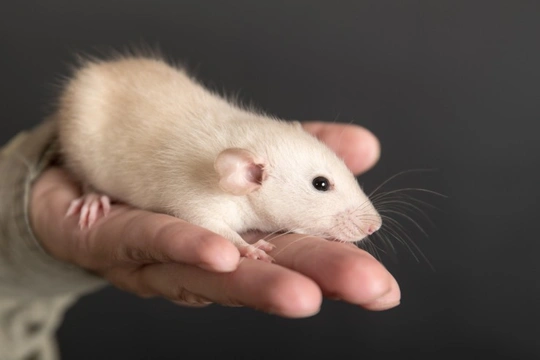Pets
Pets for studWanted petsBreedersAccessories & services
Knowledge hub
Support
Support & safety portal
Keeping your pet rats safe when outside of the cage
Rats make for intelligent, entertaining and very loving little pets, and are a good choice for people of all ages who wish to share their homes with an animal companion. It is important to get your rats used to handling and willing and keen to come up to you and feel comfortable when you take them out of the cage to play with, and many rat owners allow their pets to spend a significant amount of time outside of the cage every day, interacting with them and allowing them to stretch their legs and roam around specific set rooms.
This can provide valuable opportunities for socialisation, entertainment and exercise for your pets, and ensure that they are happy, fit and contented with their domestic life. However, keeping your pets safe when they are outside of the cage is something that all rat owners should be very well versed in, in order to insure that their rats do not get hurt, or disappear down the back of the sofa, never to be seen again!
In this article, we will look at some of the potential hazards that may face rats outside of the cage, and how to make sure that you can keep your pets safe whilst they are on the loose. Read on to learn more.
Rats and other pets
First of all, when your rat will be on the loose, make sure that no other pets like cats and dogs, which may see your rats as prey, are in the room or able to gain access to them. Added to this, never have more rats out on the loose at any one time than you can reasonably manage and keep an eye on, as this can make it much harder to keep everything under control!
Sealing the room
You should carefully assess which room of your home can be made safe and suitable for a roaming rat, and the first thing you will need to consider is how the room can be sealed and secured to keep your rat from getting out of it!
Obviously a well-fitting door with no rat-sized gaps is a must, and if you live with others, a sign for the door to let them know that a rat is loose and so, not to open the door without warning is a good idea! Windows should also be closed while your rat is out, and you should also check for other possible escape points too. Make sure that air vents and any other gaps are covered and rat proofed, and also that there are no gaps in the flooring that could allow a rat to slip under the boards, nor any piping or other objects that rats can either exit through or hide in where you would be unable to retrieve them.
Cables and cords
Rats love to chew, and it is important to provide them with a good range of rat-safe things to allow them to do this. However, rats are not very discerning about what they like to chew on, and so electrical cords and cables are all likely to be fair game to your pets!
Make sure that any cords and cables are either well out of your rat’s reach, or contained within casing that will stop your rat from potentially chewing on them when you’re not looking!
Also, remember that’s rats love to climb, and that things like curtains, bookshelves and other furniture, or anything that your rat can grip onto and climb up may give them access to things that are quite high off the ground!
Other considerations
As well as electrical cables, there are a whole range of other things that can also pose a hazard to roaming rats, not least of which is people!
When you are in a room with your rat loose, always look where you’re standing, and be wary of fabric such as cushions and throws that may be hiding a sleeping rat when you sit down!
Additionally, some houseplants can be poisonous to rats, so if you have plants in the room, check them out first to make sure that they are safe for your pet, should they try to eat them! Try to limit the amount of furniture and other items that you rat may use to climb too high, such as by avoiding floor to ceiling curtains or high furniture that your rat might be able to shimmy up.
Chewing
As mentioned, rats love to chew! Your pets are highly likely to take the opportunity of being out to find new things to get their teeth into, so minimising what your rat might chew on when on the loose will help to keep your pet safe, and prevent your things becoming damaged.
Don’t leave anything potentially valuable or dangerous in reach of your rat, nor leave anything unnecessary lying around. It is also a good idea to use one of your lesser used rooms for roaming rats, and importantly, not one that is full of valuable or new furniture!
Ensure that the carpet in the room is secure without any loose corners that your rat might chew on or lift, or if possible, pick a room with a hard floor to prevent this problem entirely. When your rat is out, try to keep them busy and entertained with toys, obstacles and other rat-suitable things that they can do and play with, to minimise the chances of them picking things you would rather that they left alone!



